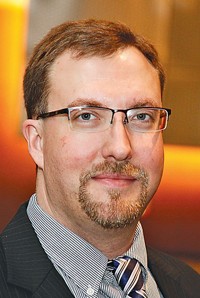Advertisement
Grab your lab coat. Let's get started
Welcome!
Welcome!
Create an account below to get 6 C&EN articles per month, receive newsletters and more - all free.
It seems this is your first time logging in online. Please enter the following information to continue.
As an ACS member you automatically get access to this site. All we need is few more details to create your reading experience.
Not you? Sign in with a different account.
Not you? Sign in with a different account.
ERROR 1
ERROR 1
ERROR 2
ERROR 2
ERROR 2
ERROR 2
ERROR 2
Password and Confirm password must match.
If you have an ACS member number, please enter it here so we can link this account to your membership. (optional)
ERROR 2
ACS values your privacy. By submitting your information, you are gaining access to C&EN and subscribing to our weekly newsletter. We use the information you provide to make your reading experience better, and we will never sell your data to third party members.
Comment
ACS science and human rights in 2019 and beyond
by Dorothy Phillips, ACS Director-at-large
January 14, 2019
| A version of this story appeared in
Volume 97, Issue 2

I have been fortunate to serve for the past several years as the American Chemical Society Board of Directors’ representative for science and human rights. Since my previous C&EN Comment, in June 2017, I am proud to report that the ACS Science and Human Rights initiative has been busy with a number of activities and projects.
Perhaps one of the greatest successes has been with the Global Chemists’ Code of Ethics project. Through the project, which is funded by the US Department of State’s Chemical Security Program, over 8,000 scientists in more than a dozen countries have been trained in topics related to chemical safety, security, and ethics since 2016. Plans are underway for continuing activities in 2019 and beyond to keep the momentum going for this great project.
A major step forward, for those who follow topics related to science and human rights, came in October 2018 when the United Nations Committee on Economic, Social, and Cultural Rights strengthened the language of article 15 (the right to science) of the International Covenant on Economic, Social, and Cultural Rights. ACS submitted a comment in support of this effort and will continue to follow the development of this article from the UN.
Online engagement is a key component of the Science and Human Rights initiative, and we have been very active. Recent webinars have explored the ways that the chemistry community has supported displaced scientists and refugees and featured the great work of Scholars at Risk, an organization that has placed over 1,000 threatened academics in visiting professorships over the past 20 years and that includes a network of universities and institutions in over 40 countries. Additionally, ACS participated with its sister societies in Human Rights Day events, including a Twitter chat and a Facebook Live panel discussion.
At the spring 2018 ACS national meeting in New Orleans, the ACS Board of Directors gave an official commendation to Scholars at Risk. This recognition was presented by ACS Board Chair John Adams to Robert Quinn, Scholars at Risk’s executive director, during the board dinner. I am grateful that ACS has been able to partner with Scholars at Risk over the years, and I look forward to continued collaboration to support its vital work.
In 2018, ACS published the book Responsible Conduct in Chemistry Research and Practice: Global Perspectives, which recognizes the importance of human rights and the chemical sciences. The book is based on the symposium titled “The Interface of Chemical and Biological Sciences International Disarmament Efforts,” held at the spring 2015 ACS national meeting in Denver. In addition to a chapter highlighting the efforts of ACS over the years in the area of science and human rights, the book also includes contributions from other scientific organizations, such as the Organisation for the Prohibition of Chemical Weapons, the National Institutes of Health Countermeasures against Chemical Threats (CounterACT) program, and the American Association for the Advancement of Science (AAAS).
Building on the successes of last year, 2019 is shaping up to have several exciting opportunities for ACS members to engage in issues related to science and human rights. ACS is proud to be a founding member of the AAAS Science and Human Rights Coalition, which will celebrate its 10th anniversary in October. The group is planning several new initiatives, including a fellowship and an innovators recognition. More details on this event will be forthcoming as the program is confirmed.
Advertisement
Beyond the previously mentioned initiatives, there are several challenges to human rights that scientists can help address. Several ACS groups are exploring opportunities for engagement with the UN sustainable development goals, several of which will require the input of chemists and chemical engineers to be realized. Additionally, ACS continues to monitor several human rights cases related to chemical sciences practitioners. We will continue to be on the lookout for other instances of threatened chemists around the world. If you are aware of a scientist who might qualify as an ACS human rights case, please email intlacts@acs.org.
Please visit www.acs.org/scienceandhumanrights to learn more about our recent activities and how you can get involved. ACS members can also receive monthly updates in the featured Science and Human Rights column of Global Chemistry, the ACS international newsletter. You can subscribe by emailing intlacts@acs.org.
I am pleased with all that has been accomplished with the ACS Science and Human Rights initiative over the past few years and look forward to helping ACS members use their knowledge to address these issues in the future.
Views expressed are those of the author and not necessarily those of C&EN or ACS..





Join the conversation
Contact the reporter
Submit a Letter to the Editor for publication
Engage with us on Twitter